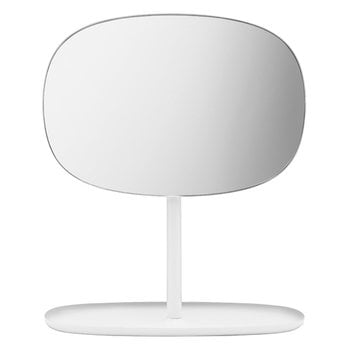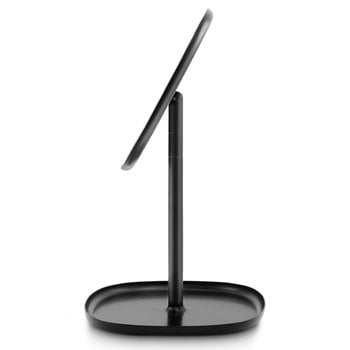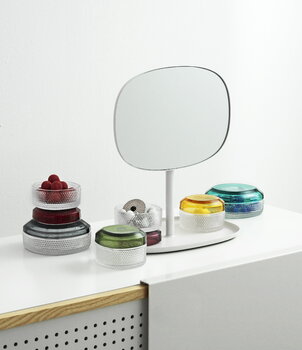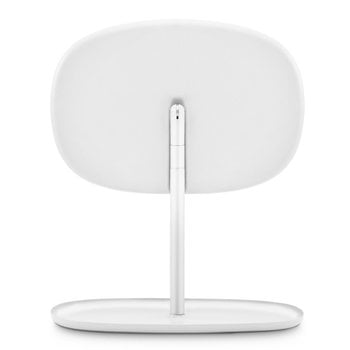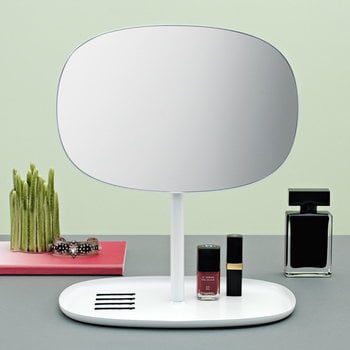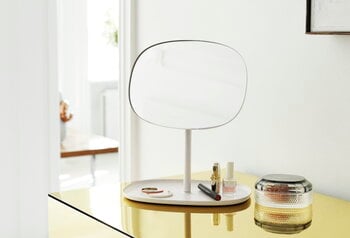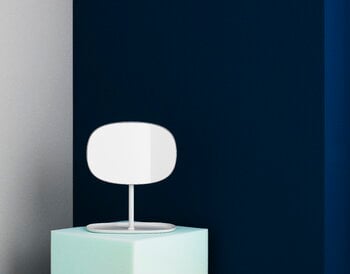Normann Copenhagen's Flip is a minimalistic table mirror, designed by Javier Moreno Studio. Flip's design was inspired by traditional dressing tables, featuring a mirror and drawers for storing small things. Javier Moreno has commented the design: ”Typically, a mirror has only one function, but I wanted to make a mirror that could offer more. You usually look in the mirror just before leaving the house, so why not let it be there where you keep the last things you use to get ready with, or need to remember just before you go?"
Flip mirror, white
Normann Copenhagen
Description
Normann Copenhagen's Flip is a minimalistic table mirror, designed by Javier Moreno Studio. Flip's design was inspired by traditional dressing tables, featuring a mirror and drawers for storing small things. Javier Moreno has commented the design: ”Typically, a mirror has only one function, but I wanted to make a mirror that could offer more. You usually look in the mirror just before leaving the house, so why not let it be there where you keep the last things you use to get ready with, or need to remember just before you go?"
Product details (5)
- Material
- Steel, glass mirror
- Colour
- White
- Width
- 28 cm
- Depth
- 19.5 cm
- Height
- 34.5 cm
- Product ID
Designer
The Spanish designer Javier Moreno graduated form EASD Alcoi from Alicante Spain in 2005. After graduating he worked as a product and 3D designer at a toy factory. After that, he worked as a product designer and manager at a few companies and did freelance projects.
Read moreReviews (1)
5
Based on 1 reviews
-
J
Jiewon Y
United States
472 days ago
Sustainability
The Product Sustainability Framework, our criteria of sustainable design, helps you find the most sustainable products in our selection. Read below which sustainability criteria this product has met.
Working conditions & labour 7/9
-
Equal opportunities for all employees
-
Commitment to UN Global Compact, fair compensation for all employees
-
Corporate responsibility requirements defined and communicated for suppliers
-
Systematic work for improved inclusion and well-being in the workplace
-
Transparent supply chain
-
Suppliers' compliance to a code of conduct ensured
-
Compliance to the UN Guiding Principles on Business and Human Rights ensured in the supply chain
Eco-friendly production 6/9
-
Fair and resource-wise water-use in production
-
No incineration or landfilling of returned items
-
No use of endangered species as materials
-
No direct environmental emissions or waste (excl. GHGs) from production
-
Material-efficient and ecological packaging
-
No potentially harmful chemicals used in own production
Climate impact 4/8
-
Company's direct greenhouse gas emissions identified and commitment to reduction
-
Product's carbon impact identified and commitment to reduction
-
Guidance on energy- and eco-efficient use of the product
-
Contribution to climate initiatives beyond the brand’s direct operations
Sustainable materials 3/6
-
Sustainable and long-lasting material choices
-
No harmful or hazardous substances
-
Responsible raw material sourcing and production
Circular design 2/5
-
High aesthetic quality promoting long-term use of the product
-
Design for enduring life-long quality

